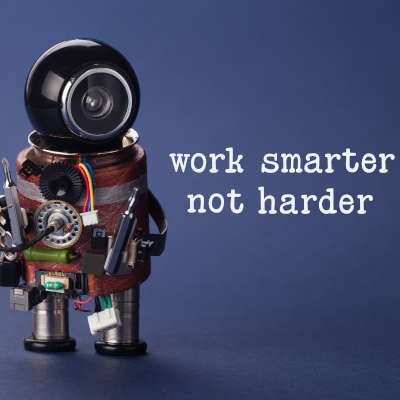Directive Blogs
How Remote Workers and Students Can Work Smarter
Now that the school year has begun many young children are juggling between altered classroom setups and continued remote education. Naturally, this has caused a lot of people no small amount of stress. To try and relieve this stress and make the process of working or learning from home as effective as possible, we wanted to share a few tips with you.
1. Pick a Space
Whether you’re working from home, or the kids need a place to learn in the house, you need to establish a specific area dedicated to doing this work. This dedicated space can be used to minimize distractions and get whoever needs to work in the right mindset to do so.
2. Act Normally
Do your best to minimize changes to your routine. If you’re used to getting up at 7:05, getting ready, and being ready to work at 8:40, don’t change your schedule to account for the diminished travel time. Follow the same process as you would normally, as this is the way you are accustomed to getting in the right frame of mind.
3. Limit Social Media
Social media has been handy during this time, as far as keeping up with people goes, and it makes sense that you’d be tempted to use it while working remotely. Avoid doing this if it can be helped, going so far as to use a different browser or remove any shortcuts to your social channels. Otherwise, you’re inviting distractions.
4. Work to Your Productivity
While this isn’t so much an option for the kids working remotely, your work processes may have enough flexibility and leeway to allow you to adjust your schedule to match your personal work patterns. Are you more focused during the morning? Do your thought-intensive and challenging tasks then. Not only will you likely accomplish more, the work will likely be of higher quality.
5. Set Expectations
Make sure that you establish some ground rules concerning remote work in your household. Constant distractions will only detract from whatever work or educational process is going on, so make it clear what your expectations are during the day. Minimizing interruptions is a key part of being productive as you work in a non-workplace environment.
6. Communicate
On the topic of communications, make sure that you and your children are using the tools available to you to ensure that everyone is clear on the process at hand. Keep in touch with your team, both in professional matters and in personal conversations. Encourage your kids to reach out to their friends after the school day ends. Remote doesn’t have to mean—and shouldn’t mean—isolated.
Make no mistake, remote operations are challenging whether you’re trying to work or learn, but with a little bit of effort the rewards can be great. To learn more about remote operations and collaboration, and the tools needed to support these activities, reach out to Directive at 607.433.2200 today.


